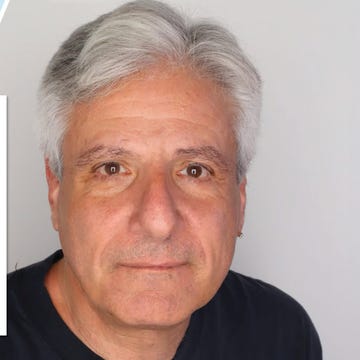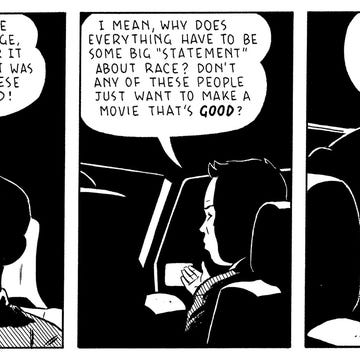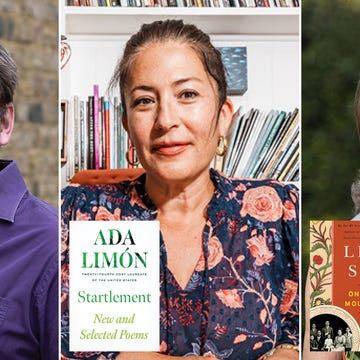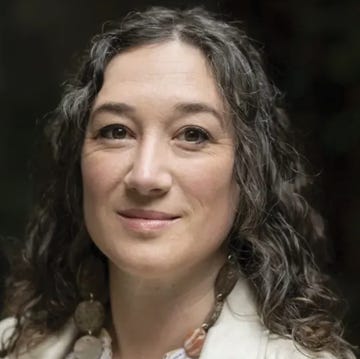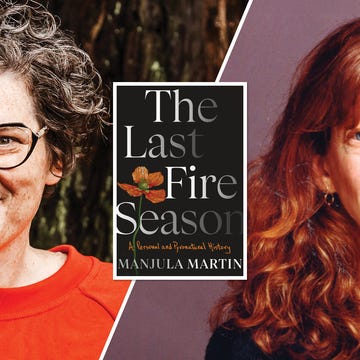It can be easy for us to see ourselves as the ones who act in and on a world of objects, and yet science and philosophy tell us that’s not the case. When we touch something, we’re not simply imposing sensation on a passive thing; rather, we’re caught in a circuit of relation, an intertwining, in which the touched surface also affects us.
If we could really acknowledge that intertwining—the agencies of the nonhuman, the mutuality of self and nonself—would we see ourselves more clearly as “modest etchings / in the landscape,” as Ada Limón writes in “In the End, Everything Gives,” and try to live on the earth in a humbler, less destructive way? Many of Limón’s poems nudge their speakers—and us, their readers—toward such acknowledgment. In the first of the new poems in Startlement: New and Selected Poems, for instance, Limón notes that as a child, she was befuddled by not being able to see the differentiating “lines of things.” Instead, she goes on, “all I could see was memory, what had been / done to the object.” Because she perceives depth and relationship instead of sharp dividing lines, she can only pretend “that there are edges, boundaries, that if I touch / something it cannot always touch me back.” And so she comes to believe, she writes in “In the End, Everything Gives,” that even the gesture of a palm reaching out creates “something / you could hold and in turn it could hold you back.” Which is to say that the body isn’t just another physical object in the world, but the very condition of experiencing the world.
That’s why it makes sense when Limón, in “Hell or High Water,” comes to call her religion “a chorus” of voices. It’s why in the collection’s title poem she tells us, “The world says, Once we were separate, / and now we must move in unison.” It’s why her poems (and even titles like “On Earth As It Is On Earth”) are grounded in, well, the earth, and it’s why, nodding to Federico García Lorca’s “Romance Sonámbulo,” Limón begins a poem: “Green and green and green, I speak / to the tree line.” Often, she insists, it’s only when we make contact with what is not us that we become aware of ourselves, as when “A storm / wets the skin and we are surprised we have / skin.”
These aren’t lessons, though. They’re intuitions that arise as the poet struggles with her materials. Meanwhile, Limón is careful not to romanticize some imagined peaceable kingdom of loving creatures. She knows that the mountain lion isn’t our best friend, that bacteria aren’t concerned about our feelings, and that the cliff won’t try to break our fall when we slip at its edge. Swimming and coming across a sea turtle, in a poem titled “Sea Turtle,” Limón admits that “he mirrored my / desire with a sort of un-desire.” In other words, however delighted she was, however she might have seen herself making contact with the sea turtle, the sea turtle was uninterested in her. It may not even have noticed her. What’s most remarkable about this poem, though, is that despite the speaker’s exuberance, she has gone mute. She loses her voice, her human language, because any sound she makes is swallowed up by the water, the turtle’s medium. And so, as in an act of translation, she’s tugged a little out of her world and closer to the world of more-than-human.
But Limón’s themes are extensive, and the new poems also touch on mortality, aging, family, memory, and the clash between insecurity and the determination to “find pleasure, my pleasure.” There’s a magical horsey love poem for the poet’s husband. And there are a few poems that are the equivalents of sighs. Limón was U.S. poet laureate for nearly three years, and however grand the title sounds, it’s a job that comes with relentless public commitments and constant tugging at the sleeve. Now the job has ended, and after a long time away, she’s returned to Glen Ellen, California, to live in the very house in which she was raised. “After all these years, I’ve come home, to the valley,” she writes in a poem inspired by her long-term identification with Mount Tamalpais. It’s a poem in which she notes that people say “take it easy,” but what they mean is “take it easy, but after / you take care of this, for me.” Released from that kind of pressure, she finds herself looking forward to “sleeping like those mountains.” There are several such moments, not unlike when you realize you’ve been gritting your teeth for a while and you relax your jaw muscles and feel, at once, the tension slacken, making room for the possibility of peace and quiet.
Given a modest word limit, I’ve focused on the recent poems in a collection composed mostly of poems selected from earlier books, believing that the new ones address the “startlement,” style, and concerns that run through Limón’s impressive and already extensive body of work. Throughout this well-edited book, you’ll find savvy, meaning-altering line breaks, pleasing unexpected rhymes, and formal structures that allow the poems a sense of idiosyncratic wandering before they surprisingly resolve and, as the Steely Dan song has it, fall “together again.” Whether you know her work well or have just begun to encounter it, this book holds the mother lode.•
Join us on November 20 at 5 p.m. Pacific time, when Limón will sit down with special guest Matthew Zapruder and host John Freeman to discuss Startlement: New and Selected Poems. Register for the Zoom conversation here.
NURSES AND LOWRIDERS
José Vadi interviews Susan Straight about her new novel, Sacrament. —Alta
FORM AND FUNCTION
Alta Journal contributing editor David L. Ulin writes about Marisa Silver and her newest novel, At Last. —Alta
2018 CAMP FIRE
Past CBC author Manjula Martin reviews The Lost Bus, an Apple TV+ movie. —Alta
WRITING GROUP
Novelist Jean Chen Ho describes writing books with four friends—Jade Chang, Angela Flournoy, Aja Gabel, and Xuan Juliana Wang—at Little Dom’s, an Italian American restaurant in Los Angeles. —Los Angeles Times
LITERARY AUCTION
From November 10 to December 1, you can bid to receive a postcard from your favorite authors in time for the holidays. Several past CBC authors are participating, including Rabih Alameddine, Percival Everett, Viet Thanh Nguyen, and Natalie Diaz. —Common
INTIMATE POEMS
David Naimon speaks to past CBC author Robin Coste Lewis about her new poetry collection, Archive of Desire: A Poem in Four Parts for C. P. Cavafy. —Tin House
Alta’s California Book Club email newsletter is published weekly. Sign up for free today.














